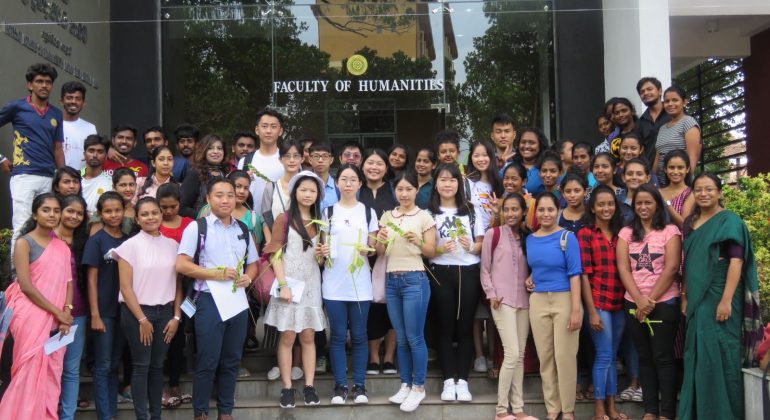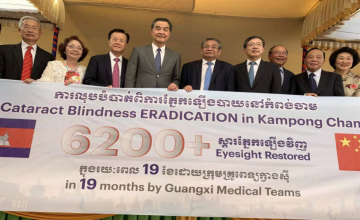 Hainan Free Trade Port Innovative Policies
Hainan Free Trade Port Innovative Policies
With little time to rest, the students from Yuen Long Catholic Secondary School continue exploring Sri Lanka’s culture and local life.
Ma Wing Yan | Hsu Lok Wing reporting from Sri Lanka
Ms Yeung Yat Heung | Mr Cheng Kai Yin, coordinate
First stop: University of Kelaniya
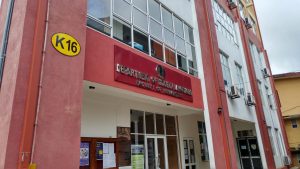
Today we are visiting a local university and I am excited to talk with some of the university students. As we arrived on campus, the students greeted us with smiles and laughter, which left a strong impression.
Even though there was nothing planned for the campus visit, we were pleasantly surprised by the university’s efforts. For instance, the students introduced the country and their traditional garments in Mandarin. Their Mandarin was so fluent we couldn’t believe they only studied the language for three years! So impressive.
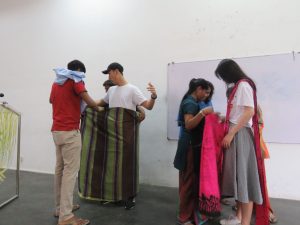
During our campus visit, the students performed a traditional dance and even asked us to try on their traditional garments. Their warm welcome allowed us to loosen up and join in on the fun. We also shared our experiences learning Mandarin, and realized the way we learn is very different from them. For the university students, learning Mandarin is very difficult. However, they understand the importance of learning Mandarin and have surpassed all the difficulties as they grow to love the language; their dedication and hard work towards learning Mandarin are very admirable. Before we parted ways, we exchanged WeChat accounts with the university students so we can stay in touch.
This visit not only allowed us to know more about Sri Lanka’s culture, but also made us realize how important being a friendly and welcoming person is. We wish these university students the best in their future endeavours and to achieve their dreams of working for a Chinese enterprise.
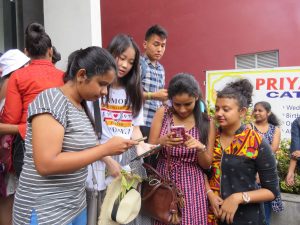
Second Stop: Xilaton Chinese Restaurant
At the Xilaton Chinese Restaurant, we listened as the manager shared her experiences working in Sri Lanka. After hearing her story, we admired her courage to travel across the ocean to work in a foreign country. She gave up her life back home and came to Sri Lanka, a less developed country with a different culture, to provide locals with work opportunities and contribute to building Sri Lanka’s economy. As for the restaurant, not only are there many Sri Lankan locals eating here, but the dishes’ flavours also strangely taste like food that foreigners would eat back home.
Third stop:Nelum Pokuna Mahinda Rajapaksa Theatre
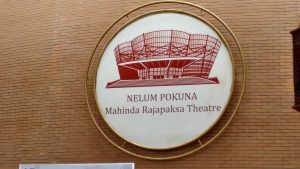
Today we visited Nelum Pokuna, Sri Lanka’s national performing arts theatre. The theatre’s exterior is shaped like a water lily, which is also the country’s national flower. During our visit, the staff gave us an overview of the building, the construction process and explained how they operate the building. The staff also took us to an amphitheatre and we took photos with local students who were also touring the place.
Sri Lanka’s largest performing arts theatre was built with the assistance of China. The theatre’s architecture incorporates a large number of Chinese and Sri Lankan cultural features, for example, Sri Lanka’s national flower, the water lily, inspired the exterior of the theatre which is shaped like a lotus flower. Thus, China and Sri Lanka’s close relationship is not only economical, but also cultural. At times, both sides have even integrated their respective cultures into the others’ lives.
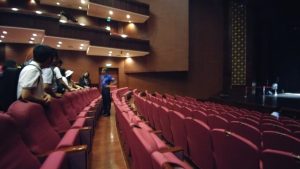 The two countries collaboration also shows China’s greater influence in the world. What impressed me the most was constantly seeing many local students coming in and out, touring the place. It was only after the visit did I realize this is the largest theatre and only theatre in the country.
The two countries collaboration also shows China’s greater influence in the world. What impressed me the most was constantly seeing many local students coming in and out, touring the place. It was only after the visit did I realize this is the largest theatre and only theatre in the country.
For us, theatres are taken for granted and we never appreciate these facilities like the Sri Lankans do. We also never take the time to visit any of the buildings back at home to understand the history behind them. Although facilities back at home are better than those in Sri Lanka, have we ever shown gratitude and a willingness to learn like the local students here? The answer is pretty self-explanatory, and it goes to show that we must reflect on ourselves and be more like the local students who are passionate towards learning.

Fourth stop:Sri Lanka Tea Board
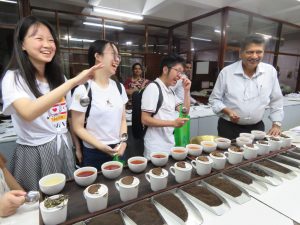 Since tea is the Sri Lanka’s speciality, we had to visit one of the country’s teahouses. While we were there, the staff explained to us the unique features and variations of black tea. In addition, we tasted local milk tea and watched the staff perform a tea ceremony. During the tour, we visited the testing centre which looked like a laboratory filled with the aroma of tea leaves.
Since tea is the Sri Lanka’s speciality, we had to visit one of the country’s teahouses. While we were there, the staff explained to us the unique features and variations of black tea. In addition, we tasted local milk tea and watched the staff perform a tea ceremony. During the tour, we visited the testing centre which looked like a laboratory filled with the aroma of tea leaves.
I am very grateful the staff took time out of their busy schedules to welcome us to the teahouse. Through this exchange, we were introduced to the history of black tea and witnessed the method of tasting the tea.
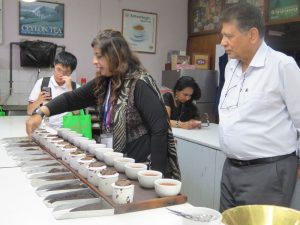 Every country’s people have their own lifestyle. For the Sri Lankans, tea is an essential part of their lives. The locals always tell us the health benefits of drinking tea, that it is rich in antioxidants. In Hong Kong, we never take our time to enjoy drinking tea; while in Sri Lanka, the more laid-back lifestyle allows the locals to do so.
Every country’s people have their own lifestyle. For the Sri Lankans, tea is an essential part of their lives. The locals always tell us the health benefits of drinking tea, that it is rich in antioxidants. In Hong Kong, we never take our time to enjoy drinking tea; while in Sri Lanka, the more laid-back lifestyle allows the locals to do so.
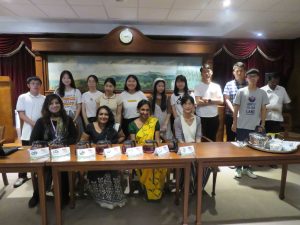
Fifth stop:Crescat Shopping Mall
After visiting the teahouse, we decided to go to Crescat Shopping Mall for some downtime. This shopping mall’s design is similar to that of Hong Kong malls but only with more shops dedicated to selling Sri Lankan specialities. While browsing the shops, I noticed that over here, shop employees really enjoy assisting customers, value taking care of every individual and treat them with respect. This allowed me to have an enjoyable shopping experience.
Of course, there were some students, who are used to the fast-paced shopping experience, that were unsatisfied with the service. One reason can be the less advanced payment methods (some shops handwrite the receipts), or the locals’ laid-back attitude towards life. Honestly, I admire the local peoples’ slow-paced life. They are not stressed all the time, which allows them to focus on enjoying every moment. However, looking from another point of view, with the development of the country, I believe in a few years’ time our lifestyles won’t be that different!
As midnight strikes, we take our new knowledge and experiences back with us to the hotel.
